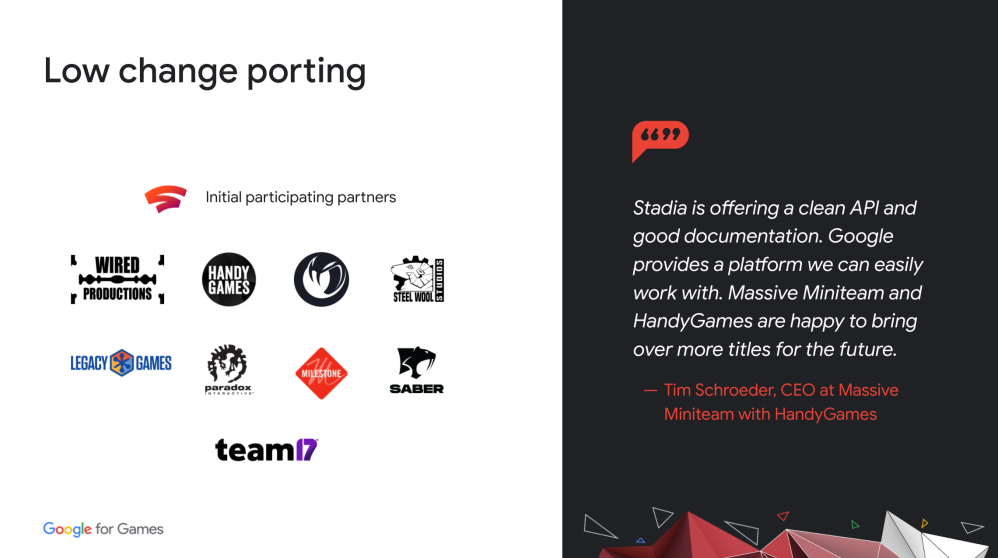
Google has unveiled it’s latest efforts to make it easier for companies – including Steel Wool Studios, developers of Five Nights at Freddy’s: Security Breach – to port Windows games to Stadia.
Three years after Stadia was first unveiled at GDC 2019, Google has once again returned to the conference to showcase its ambitions for the game streaming service.
One of the core known limitations of Stadia from the get-go is that instead of being based on Windows, where many PC games make their home today, Google based the system on Linux. Gaming on Linux has been a burgeoning market for years now – as best emphasized by the recent launch of the Steam Deck from Valve – but Windows has the lion’s share of games and gamers alike.
At last year’s GDC, Google talked at length about it’s efforts to make it as simple as possible for game developers who use the Unity and Unreal engines to bring their titles over to Stadia. This was paired with mentions of a work-in-progress “Stadia Porting Toolkit,” which aimed to “translate” games from Windows to Linux for the sake of Stadia.
For the Google for Games Developer Summit at GDC 2022, the Stadia team shared progress on this toolkit which is now referred to as “Low Change Porting.” The most important change is that more than 10 partner studios are actively testing its potential to port their Windows-based games to Stadia. In fact, at least one already announced game – Cities Skylines, set to arrive on Stadia in spring – has been brought to the platform using these tools.
Later this year, the Low Change Porting toolkit will be made more widely available to developers. A list of a few of the current partners includes Steel Wool Studios, the company behind the most recent Five Nights at Freddy’s games, and Team17, the studio responsible for the Overcooked franchise.
- Handy Games
- Legacy Games
- Milestone S.r.l.
- Nacon
- Paradox Interactive
- Saber Interactive
- Steel Wool Studios
- Team17
- Wired Productions

Stadia is offering a clean API and good documentation. Google provides a platform we can easily work with. Massive Miniteam and HandyGames are happy to bring over more titles for the future.
— Tim Schroeder, CEO at Massive Miniteam with HandyGames
From this keynote and the Low Change Porting efforts, it’s clear that Google has ambitions to continue enticing studios to bring games to its streaming platform, both for the sake of Stadia and for the now formally unveiled “Immersive Stream for Games” white label service.
On a related note, one of the other talks being given by Googlers at the summit today is entitled “How to write a Windows emulator for Linux from scratch?” While the techniques being demonstrated in the talk – quite similar to that of Valve’s Proton software – will certainly be beneficial to bringing Windows games to Linux and therefore Stadia, this isn’t Stadia announcing immediate support for Windows games. Instead, think of it as just one of the many potential tools in Stadia’s Low Change Porting toolkit for game studios.
FTC: We use income earning auto affiliate links. More.




Comments